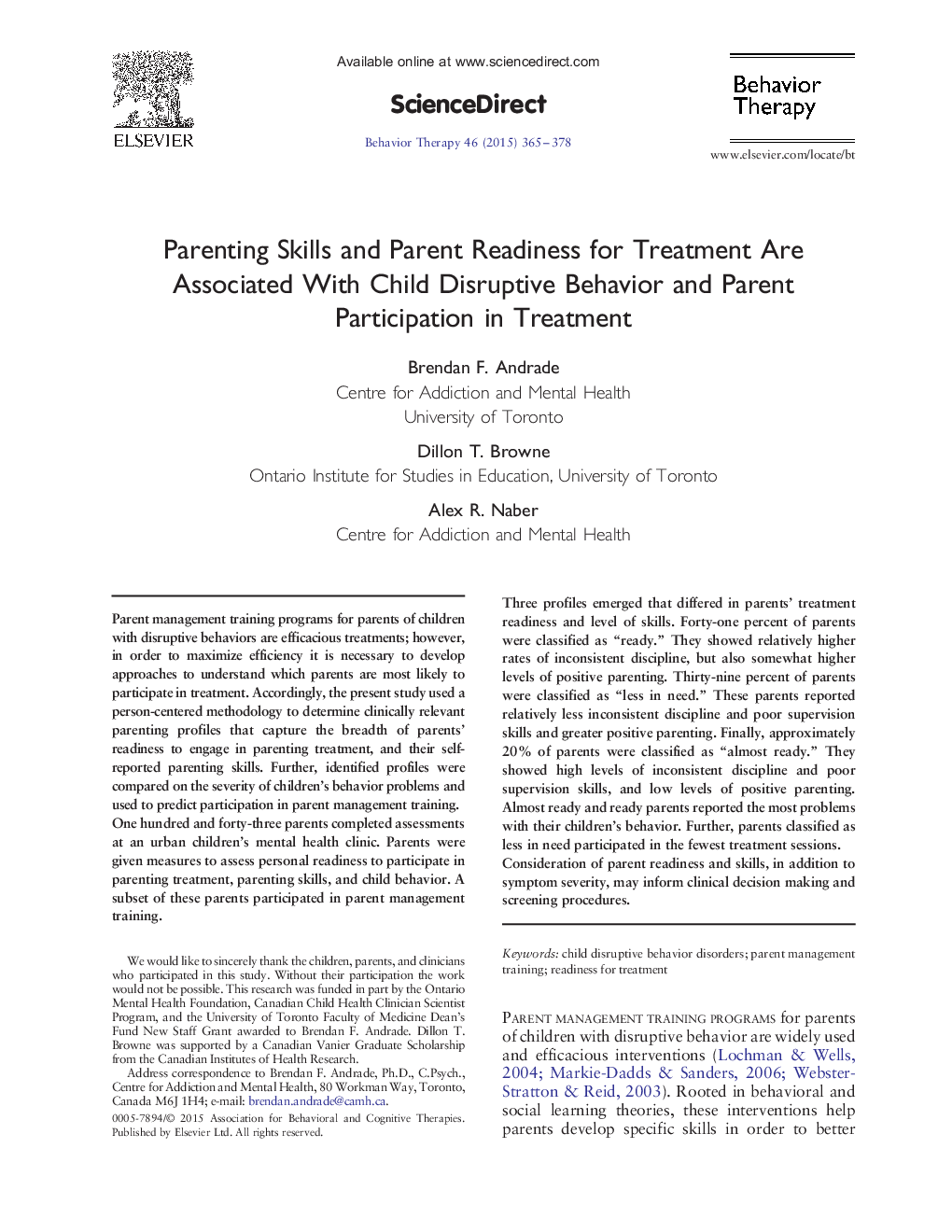| Article ID | Journal | Published Year | Pages | File Type |
|---|---|---|---|---|
| 901259 | Behavior Therapy | 2015 | 14 Pages |
•Person-centered analysis was used to identify 3 profiles based on parent “readiness” for treatment and parenting skills•Parents with higher levels of readiness for treatment also reported the most problems with their children’s behavior•Parents classified as “less in need” participated in the fewest number of group treatment sessions•Consideration of parent readiness for treatment may inform clinical decision-making and group screening procedures
ObjectiveParent management training programs for parents of children with disruptive behaviors are efficacious treatments; however, in order to maximize efficiency it is necessary to develop approaches to understand which parents are most likely to participate in treatment. Accordingly, the present study used a person-centered methodology to determine clinically relevant parenting profiles that capture the breadth of parents’ readiness to engage in parenting treatment, and their self-reported parenting skills. Further, identified profiles were compared on the severity of children’s behavior problems and used to predict participation in parent management training.MethodOne hundred and forty-three parents completed assessments at an urban children’s mental health clinic. Parents were given measures to assess personal readiness to participate in parenting treatment, parenting skills, and child behavior. A subset of these parents participated in parent management training.ResultsThree profiles emerged that differed in parents’ treatment readiness and level of skills. Forty-one percent of parents were classified as “ready.” They showed relatively higher rates of inconsistent discipline, but also somewhat higher levels of positive parenting. Thirty-nine percent of parents were classified as “less in need.” These parents reported relatively less inconsistent discipline and poor supervision skills and greater positive parenting. Finally, approximately 20% of parents were classified as “almost ready.” They showed high levels of inconsistent discipline and poor supervision skills, and low levels of positive parenting. Almost ready and ready parents reported the most problems with their children’s behavior. Further, parents classified as less in need participated in the fewest treatment sessions.ConclusionsConsideration of parent readiness and skills, in addition to symptom severity, may inform clinical decision making and screening procedures.
